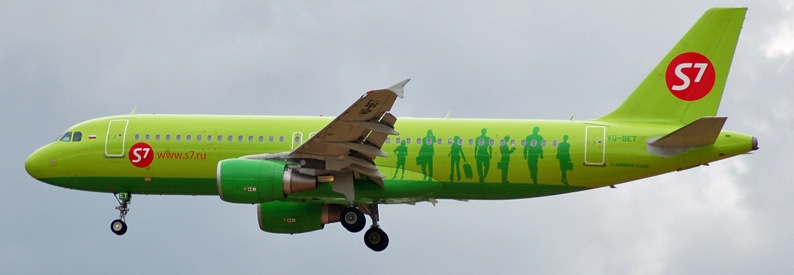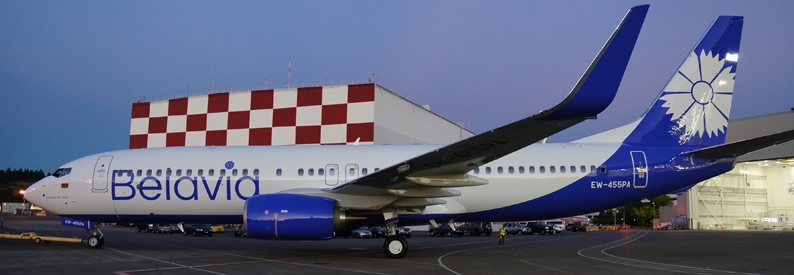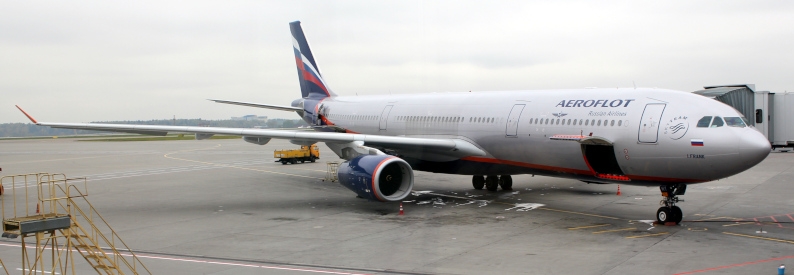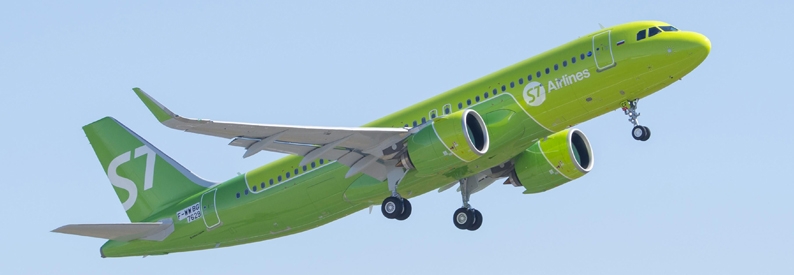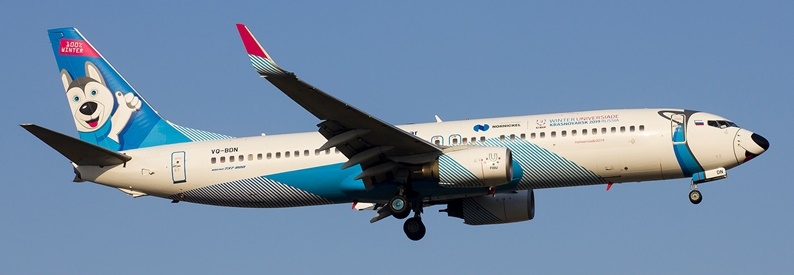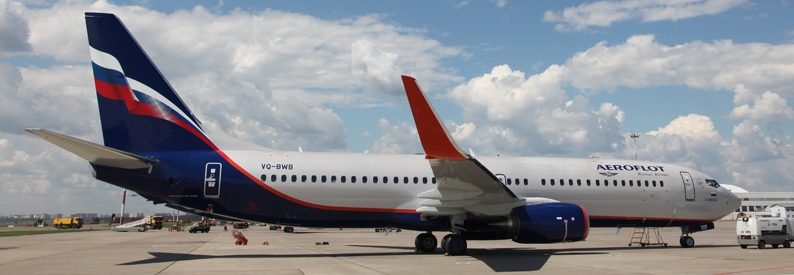S7 Airlines (S7, Novosibirsk) is having to downsize its employee and flight-crew headcount in Moscow due to frequency cuts and route changes forced on it by a fifth of its aircraft being grounded over problems with their A320/1neo fleet's Pratt & Whitney engines, Kommersant reported. The engine issues are exacerbated because international sanctions against Russia make scheduling repairs on them impossible.
According to the ch-aviation Commercial Aviation Aircraft Data module, Russia’s biggest privately-owned airline by fleet size operates a total of 99 aircraft. Of these, 25 are currently inactive including fifteen A320neo and A321neo jets with PW1000G engines: seven of its thirty-one A320-200Ns, all four of its A321-200Ns, and all four of its A321-200NX.
S7 Airlines had already said in October that its winter schedules would be cut by 10-15% compared to the previous year to account for the grounded Airbus narrowbodies. In December, S7 Group’s chairman of the board, Evgeny Elin, warned of a looming engine crunch in Russia.
Sources told Kommersant that the decision to cut staff numbers in Moscow is also linked to S7’s plans to expand its presence in Russia’s regions as well as bolster its main hub at Novosibirsk, where there is less competition with other major players. S7 Group has its headquarters in Ob, Novosibirsk Oblast, in southwestern Russia. Some employees have been offered the opportunity to work at the company’s offices there or in Irkutsk, while pilots have reportedly been offered the chance to retrain with different aircraft types.
S7 Airlines operates 22.7% of its total capacity at Novosibirsk and 23.7% at Moscow Domodedovo for the week starting January 22, ch-aviation Commercial Aviation Operator Capacity Data data shows. Third on the list is Irkutsk International with 6.9%.
Aeroflot and its budget subsidiary Pobeda have said they are ready to hire laid-off flight attendants from S7. However, aviation insiders who Kommersant interviewed speculated that workforce reductions at S7 may precede layoffs at other Russian carriers as traffic volumes are languishing 18% below pre-pandemic levels. But the sanctions heaped on Russia for its full-scale invasion of Ukraine in February 2022 have hurt S7, with its comparatively modern fleet, the most due to the Pratt & Whitney PW1000G engine problems, they added.
One source at the airline said that the group aims to cut about 13% of the staff at the Moscow office (other estimates suggest it will be closer to 15%), equivalent to around 7% of the total number of employees. A source said that S7 is undergoing a reorganisation and merger of several legal entities, optimising the staffing tables, but that the company will be focusing more on developing its technical and engineering divisions with plans to increase the number of personnel in these units.
In September 2023, S7 Group co-owner Tatyana Fileva said that revenue from flights at Novosibirsk was approaching the figure out of Moscow, and, according to her, “the time has come to be a little different” and create a unique niche; “We need to go back to the regions.”
- Type
- Base
- Aircraft
- Destinations
- Routes
- Daily Flights
